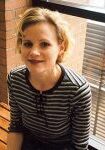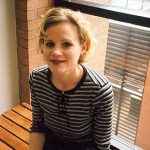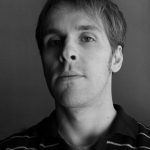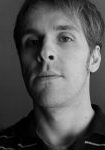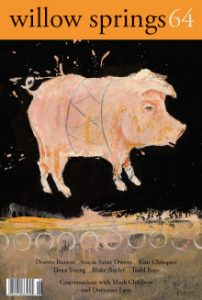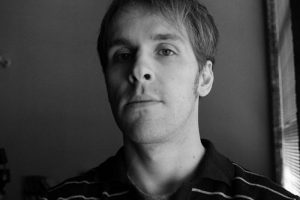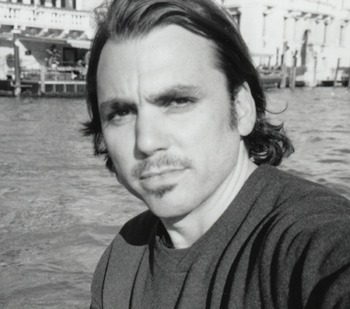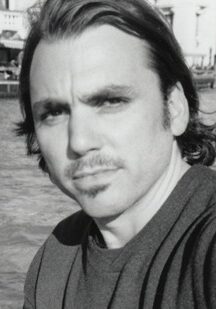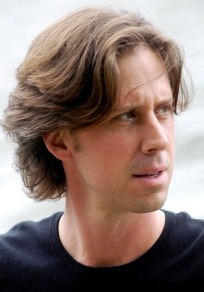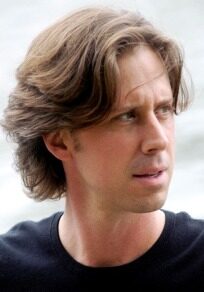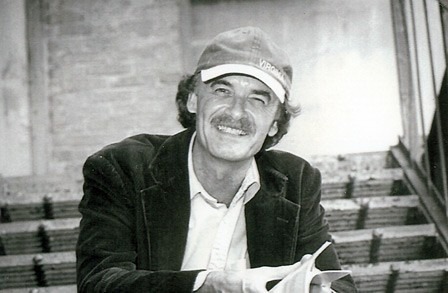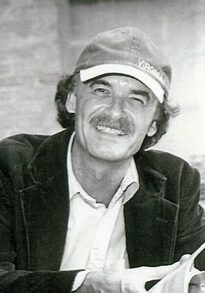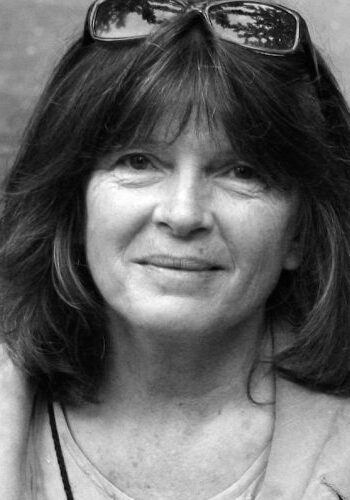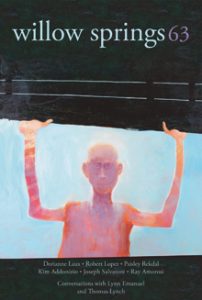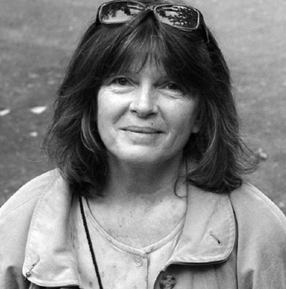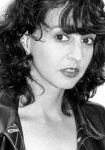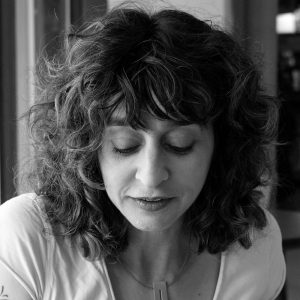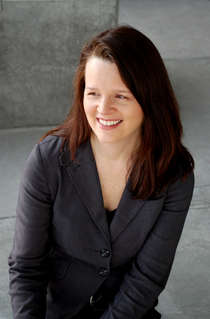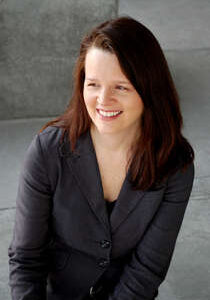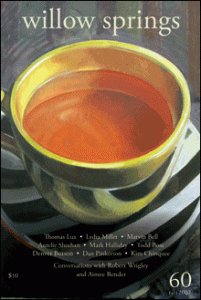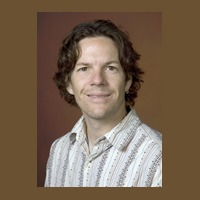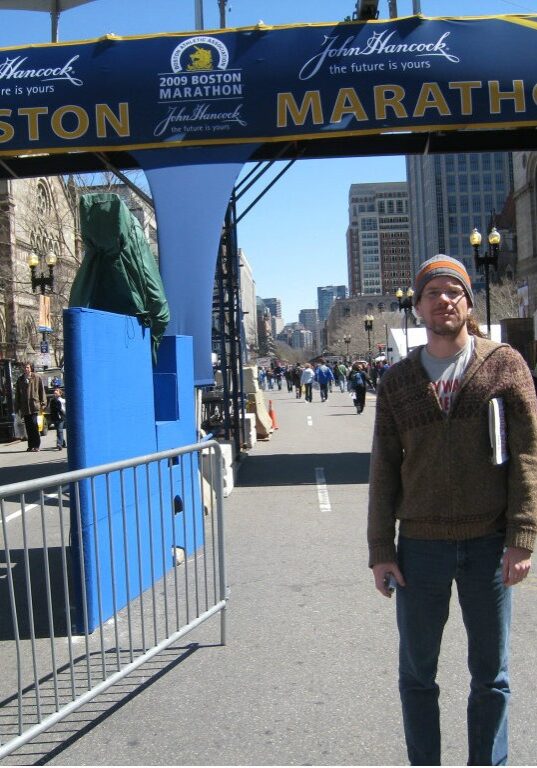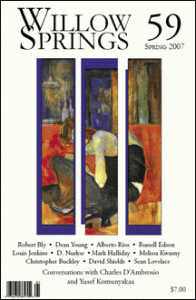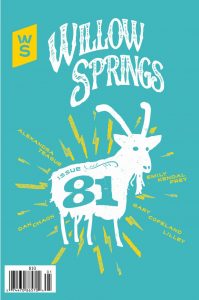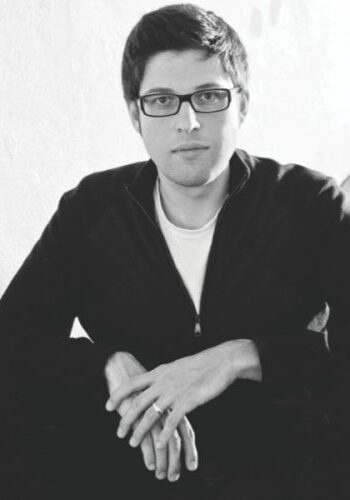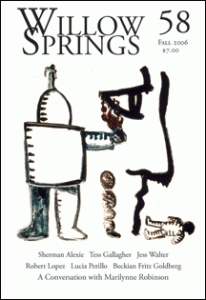Notes on “S Sgt. Metz”
I began the poem in the airport on my way to Spokane to read at Get Lit. I saw this beautiful man, not overly handsome, not sexually attractive to me, just a perfect specimen of the human figure, well-proportioned, easy in his body, a sculpture of a man. That struck me, and the fact that he was a serviceman. His uniform seemed to intensify his perfection. Neat lines, clean, precision-pressed, well-fitted. I stood behind him at the Starbucks and as soon as I got my coffee I made a beeline for the door to have a smoke. I began writing about him in the notebook I carry with me everywhere, just making a sketch, a quick portrait of him, as an artist would. When I looked up from my notebook I saw him standing there, right in front of me, waiting for a bus. I just kept writing. I showed the poem to my husband and he gave me a few suggestions for changes, which I made, and then I read the poem a few evenings later at the festival.
I often write as things happen, and I’m especially drawn to strangers. But it’s unusual to get a poem so quickly. The poem seemed to unfold before me as I wrote. As you can see from my answer to the previous question, it felt almost too easy to write. It seemed as if Metz just gave me the poem, and I guess he did. Without him, it would not have been written.
It’s not a departure, as I’ve written war-related poems before, though not often. It’s difficult to write poems on the subject without being polemical. I write them, I just don’t seem to finish them and I don’t publish many that I finish. If this one works at all, I think it’s because I felt stripped down by the moment, seeing Metz in the flesh, so strong and confident, and knowing what I know of the Vietnam war, how he might return, broken, fearful, confused—it was a powerful vision. I can’t see men in uniform without thinking of my own brother, a Vietnam vet who was a casualty of that war, my first boyfriend. I write about that era because it haunts me. I was a young girl, watching images of war flicker in black and white across the television screen, opening newspapers and magazines to naked human bodies in ditches, men knee-deep in mud, children covered in napalm, flag-draped coffins. The poem was trying to figure out who I was in the face of my history, my country’s history. The poem was as intimate as a private journal entry. Later, I put the pressure of form on it, and revised it back a bit, getting rid of any dross, but the poem is me, thinking out loud, trying to understand how I feel and what it means.
Notes on Reading
In keeping with the Metz poem, I don’t think I could have written it without the early influence of Neruda’s work. Also Carolyn Forche’s The Country Between Us, which includes poems about the war in El Salvador, and Doug Anderson’s The Moon Reflected Fire, a very under-read book about the Vietnam war and Yusef Kommunyakaa’s Dien Cai Dau. I re-read those books often as I teach them to my young students who often don’t know about either of those wars.
My experience of these poems is heightened when I see them through my students’ eyes, when I hear them get up in front of the classroom and recite them. One of my students read Anderson’s book and went to the Library of Congress online and found original drawings by Vietnam vets and made a broadside of the poem using one of the drawings. Another researched the French-Indonesian war to deepen his understanding of the poems. I didn’t ask them to do this. The poems engendered a curiosity in them, compelled them to know more. The poems became their teachers.
Forche’s book was written in 1982, and 26 years later the poems hold up. She’s a gifted writer. Dien Cai Dau was written in 1988 and again, the poems are just as fresh and moving as they were when it first arrived. Anderson’s book is newer, published in 2002 by Alice James Books, but it’s one of the most harrowingly spare and powerful books about war I have ever read. Anderson is coming out with a memoir about his service as a medic during the Vietnam war. W.W. Norton will publish it this year. I hope it brings more attention to his poetry.
I have been shaped by the books I read as a child and a young adult: Mother Goose, The Childcraft Books, A Tree Grows in Brooklyn, novelists and poets of the period, Frost, Sandburg, cummings. Dickenson and Whitman. Later, I plunged into the work of women poets: Sexton, Plath, Rich, Levertov, Olds. They led me to Anna Akmatova, Ruth Stone, Lucille Clifton. They were my poetry mothers. All of these women spoke with a clear, direct voice of difficult and hidden things. I hope to speak clearly and directly, to try, at all times, to say what I mean, and mean what I say. There is no book I want to write, only one poem that’s fully true, that’s worthy of the world it was born from and into. And maybe another. And another. For a poet, that’s almost too much to hope for. As I tell my students, writing poems is difficult. Writing a good poem, a true poem, even a line that reaches out from the page and grabs a reader’s heart, shifts perceptions, is almost impossible. So much can go wrong. I have few thoughts of the future beyond writing more poems. I take it like an addict: one day at a time.
